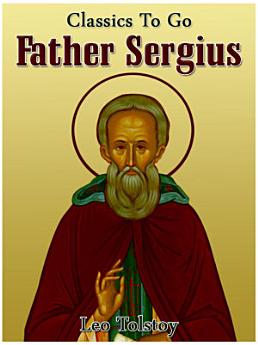Father Sergius
Dec 2015 · Otbebookpublishing
Ebook
56
Pages
family_home
Eligible
info
reportRatings and reviews aren’t verified Learn More
About this ebook
The story begins with the childhood and exceptional and accomplished youth of Prince Stepan Kasatsky. The young man is destined for great things. He discovers on the eve of his wedding that his fiancée Countess Mary Korotkova has had an affair with his beloved Tsar Nicholas I. The blow to his pride is massive, and he retreats to the arms of Russian Orthodoxy and becomes a monk. Many years of humility and doubt follow. He is ordered to become a hermit. Despite his being removed from the world, he is still remembered for having so remarkably transformed his life. One winter night, a group of merry-makers decide to visit him, and one of them, a divorced woman named Makovkina, spends the night in his cell, with the intention to seduce him. Father Sergius discovers he is still weak and in order to protect himself, cuts off his own finger. Makovkina is stunned by this act, and leaves the next morning, having vowed to change her life. A year later she has joined a convent. Father Sergius' reputation for holiness grows. He becomes known as a healer, and pilgrims come from far and wide. Yet Father Sergius is profoundly aware of his inability to attain a true faith. He is still tortured by boredom, pride, and lust. He fails a new test, when the young daughter of a merchant successfully beds him. The morning after, he leaves the monastery and seeks out his cousin Pashenka (Praskovya Mikhaylovna), whom he, with a group of other boys, had tormented many years ago. He finds her, now in all the conventional senses a failure in life, yet imbued with a sense of service towards her family. His path is now clearer. He begins to wander, until eight months later he is arrested. He is sent to Siberia, where he now works as the hired man of a well-to-do peasant. (Excerpt from Wikipedia)
About the author
Leo Tolstoy (1828-1910) stands as a towering figure in world literature, renowned for his profound exploration of human nature and society. Born into Russian aristocracy, Tolstoy's early life was marked by privilege, yet he was deeply affected by the suffering he witnessed around him. This duality fueled his literary genius and moral inquiries.Tolstoy's literary contributions are monumental, with works like "War and Peace" and "Anna Karenina" offering intricate portrayals of Russian life and the human condition. His narrative style, characterized by deep psychological insight and philosophical depth, has influenced countless writers, from Virginia Woolf to James Joyce.However, Tolstoy's significance extends beyond literature. He was a vocal critic of institutionalized religion and the state, advocating for a return to a simpler, more spiritual way of life. His later years were marked by a radical transformation, embracing pacifism, Christian anarchism, and asceticism. These revolutionary ideas inspired figures like Mahatma Gandhi and Martin Luther King Jr., cementing his legacy as a thinker who transcended the written word.Controversially, Tolstoy's rejection of his aristocratic roots and his tumultuous relationship with his wife, Sofia, added a dramatic flair to his life story. His relentless quest for truth and authenticity, often at odds with societal norms, continues to captivate modern readers, making him not just a literary icon, but a timeless beacon of moral and philosophical inquiry.
Rate this ebook
Tell us what you think.
Reading information
Smartphones and tablets
Install the Google Play Books app for Android and iPad/iPhone. It syncs automatically with your account and allows you to read online or offline wherever you are.
Laptops and computers
You can listen to audiobooks purchased on Google Play using your computer's web browser.
eReaders and other devices
To read on e-ink devices like Kobo eReaders, you'll need to download a file and transfer it to your device. Follow the detailed Help Center instructions to transfer the files to supported eReaders.








